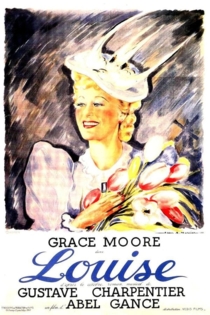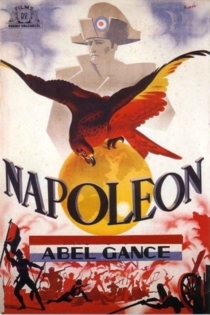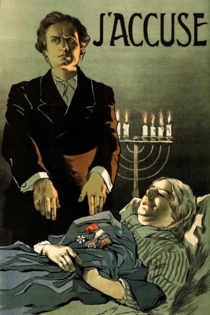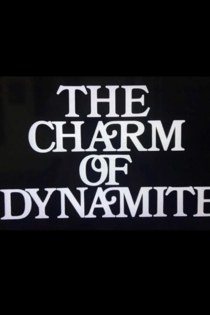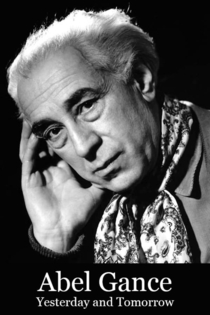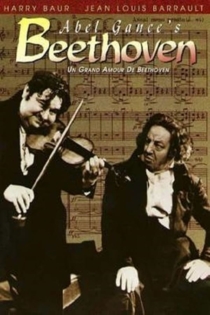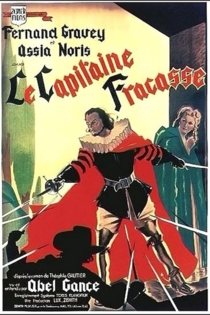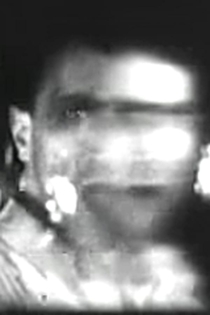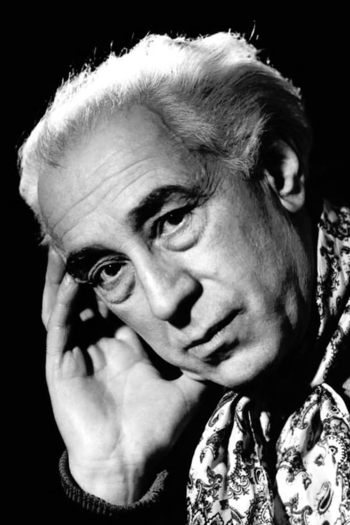
Abel Gance
1889 - 1981He was born in Paris in 1889. In 1909, he acted in his first film. He also wrote scenarios, and often sold them to Gaumont. During this period he was diagnosed with tuberculosis, fatal at the time, but he recovered. In 1911, with some friends he established a production company, Le Film Français, and began directing his own films.
With the outbreak of WW I, rejected by the army on medical grounds, he started writing and directing for a new film company, Film d'Art until 1918, making over a dozen successful films. Charles Pathé underwrote his next film, J'accuse (1919), in which Gance confronted the waste and suffering which the war had brought.
In 1920, he developed La Roue. He brought an unprecedented level of energy and imagination to the technical realization of his story, employing elaborate editing techniques and innovative use of rapid cutting which made the film highly influential. The finished film ran for nearly nine hours, but was edited down for distribution.
In 1921, Gance visited America to promote J'accuse. He met D. W. Griffith, whom he had long admired. He was also offered a contract with MGM but turned it down.
He then embarked on his greatest project, a six-part life of Napoléon. Only the first part was completed, tracing his early life, through the Revolution, up to the invasion of Italy, but even this occupied a vast canvas with meticulously recreated historical scenes and scores of characters. The film was full of experimental techniques, combining rapid cutting, hand-held cameras, superimposition of images, and, in wide-screen sequences, shot using a system he called Polyvision needing triple cameras (and projectors), achieved a spectacular panoramic effect, including a finale in which the outer two film panels were tinted blue and red, creating a widescreen image of a French flag. The original version ran for around 6 hours. A shortened version received a triumphant première at the Paris Opéra in April 1927.
Throughout his life he kept returning to Napoléon, editing his footage, and as a result the original 1927 film was lost from view for decades. The dedicated work of the film historian Kevin Brownlow produced a five-hour version, still incomplete but fuller than anyone had seen since the 1920s. It was presented at the Telluride Film Festival in 1979, and the occasion brought a belated triumph to Gance's career, and made his name known to a worldwide audience.
In the assessment of Kevin Brownlow, "...[Abel Gance] made a fuller use of the medium than anyone before or since". As well as his multiscreen ventures with Polyvision, he explored the use of superimposition of images, extreme close-ups, fast rhythmic editing, and he made the camera mobile in unorthodox ways – hand-held, mounted on wires or a pendulum, or even strapped to a horse. He also made early experiments with the addition of sound to film, and with filming in color and in 3-D. There were few aspects of film technique that he did not seek to incorporate in his work, and his influence was acknowledged by contemporaries and later by the French New Wave film-makers.
Napoléon
Abel Gance
Albert Dieudonné, Vladimir Roudenko
A biopic of Napoleon Bonaparte, tracing the Corsican's career from his schooldays (where a snowball fight is staged like a military campaign) to his flight from Corsica, through the French Revolution (where a real storm is intercut with a political storm) and the Terror, culminating in his triumphant invasion of Italy in 1797. Originally intended to be the first of six films, director Abel Gance realized the full project would be nigh impossible, and never raised the money to complete the other five. The film's legendary reputation is due to the astonishing range of techniques that Gance uses to tell his story, culminating in the final twenty-minute triptych sequence, which alternates widescreen panoramas with complex multiple- image montages projected simultaneously on three screens.
Napoléon
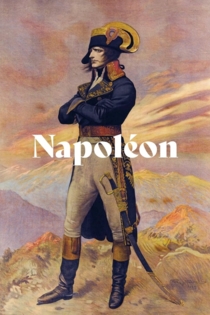
La Roue
Abel Gance
Séverin-Mars, Ivy Close
Sisif, a railwayman, saves a young girl named Norma orphaned by a train crash and raises her as his own daughter alongside his son, Elie. As she becomes an adult, Sisif grapples with whether to tell Norma the truth about her parentage.
La Roue
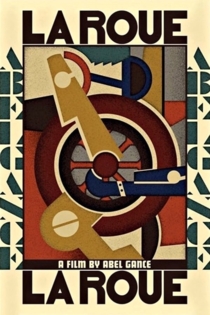
Bonaparte et la révolution
Abel Gance
Abel Gance's 1971 sound edition of his epic 1927 'Napoleon', which contains much of the silent original, with new material shot and added in both 1965 and 1971, and with sound synchronization from both the 1932 reissue and this version.
Bonaparte et la révolution
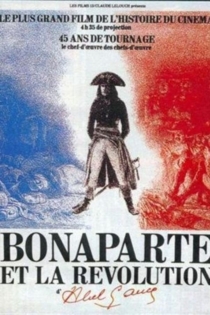
La Chute de la maison Usher
Jean Epstein
Jean Debucourt, Marguerite Gance
A stranger called Allan goes to the House of Usher. He is the sole friend of Roderick Usher, who lives in the eerie house with his sick wife Madeleine. When she dies, Roderick does not accept her death, and in the dark night, Madeleine returns.
The Fall of the House of Usher
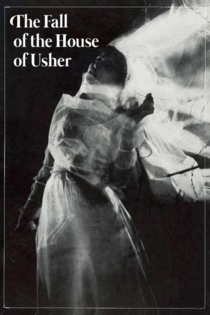
J'accuse
Abel Gance
Victor Francen, Line Noro
After serving in the trenches of World War I, Jean Diaz recoils with such horror that he renounces love and personal pleasure to immerse himself in scientific research, seeking a machine to prevent war. He thinks he has succeeded, but the government subverts his discovery, and Europe slides with seeming inevitability toward World War II. In desperation, Diaz summons the ghosts of the war dead from the graves and fields of France to give silent, accusing protest.
I Accuse
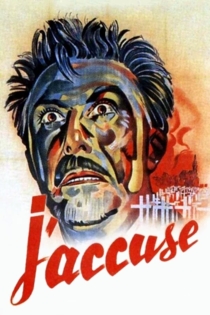
Au secours!
Abel Gance
Max Linder, Gaston Modot
Max accepts a wager that he cannot remain in a haunted castle for one hour (11 PM to midnight) without crying for help. As soon as he arrives he encounters strange and nightmarish visions, but he is nevertheless on the verge of winning the bet when a phone-call brings startling news.
Au Secours!
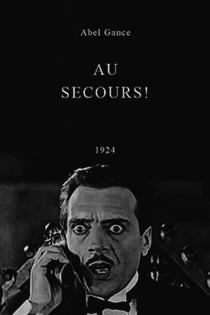
Vénus aveugle
Abel Gance
Viviane Romance, Georges Flamant
Vénus aveugle (Blind Venus) is a 1941 French film melodrama, directed by Abel Gance, and one of the first films to be undertaken in France during the German occupation. Although the film is not set in any specified period, Gance wanted it to be seen as relevant to the contemporary situation in France. He wrote, "...La Vénus aveugle is at the crossroads of reality and legend... The heroine ... gradually sinks deeper and deeper into despair. Only when she has reached the bottom of the abyss does she encounter the smile of Providence that life reserves for those who have faith in it, and she can then go serenely back up the slope towards happiness. If I have been able to show in this film that elevated feelings are the only force that can triumph over Fate, then my efforts will not have been in vain."
Blind Venus
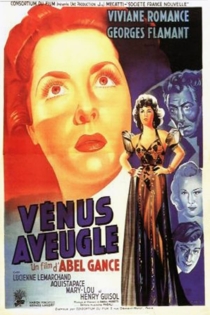
Paradis perdu
Abel Gance
Fernand Gravey, Micheline Presle
In pre-World Ward I in Paris, a budding artist, Pierre LeBlanc, falls in love and marries Janine, a dressmaker's assistant. Pierre has a flair for designing clothes, and he and his bride live in a blissful paradise, until the war breaks out and he becomes a soldier. Janine dies in childbirth and, no longer desiring to live, Pierre volunteers for a dangerous patrol behind German lines. While recuperating in the hospital from a wound he received on the mission, Pierre spends his time drawing sketches of dresses. He becomes rich and famous after the war. Years later, after devoting himself to his daughter, Pierre seeks a marriage with a girl no older than his daughter. A conflict develops and to ensure his daughter's happiness, Pierre sacrifices his own plans.
Paradis perdu
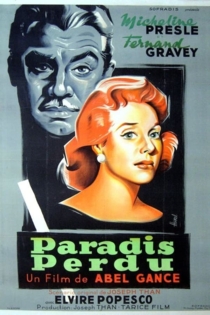
Louise
Abel Gance
Grace Moore, Georges Thrill
What was it about opera diva Grace Moore that attracted the attention of filmdom's top directors? Moore's 1937 American movie vehicle When You're in Love had been directed by Josef Von Sternberg; two years later, her French starrer Louise was helmed by no less than Abel Gance, who a decade earlier had revolutionized the "historical epic" genre with the awesome Napoleon. There was, however, little that was revolutionary in this cinemadaption of Gustave Charpentier's opera. Moore plays Louise, a poor seamstress who is led astray by the rakish Julien (Georges Thill). After falling from grace (no pun intended), our heroine is rescued by her understanding father (Andre Pernet), who demonstrates his forgiveness by singing to her (it is, after all, an opera). Though it played to enthusiastic crowds in both London and Paris, Louise turned out to be Grace Moore's final film; conversely, Abel Gance continued to make commercial potboilers well into the 1970s.
Louise
